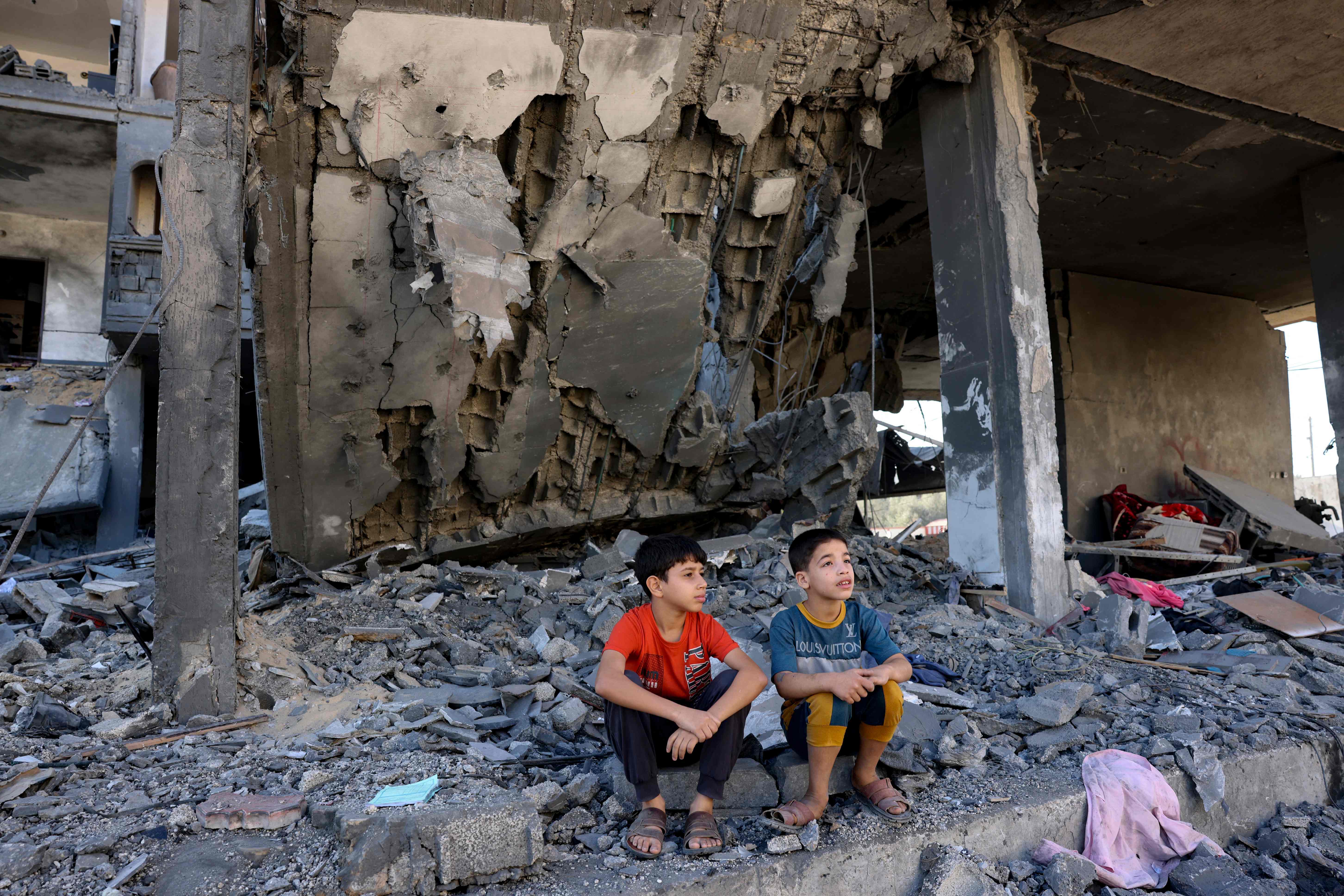This is how we can help the children of Gaza
The appalling terrorist attack on Israel has put a million young lives at risk, writes Lisa Nandy. Their safety must now be the priority of the international response


The average age in Gaza is just 18. Make no mistake, this is tragically a children’s war. According to Save the Children, more children have died in Gaza in four weeks following the terror attacks by Hamas on Israel on than in all the world’s conflicts for each of the last three years.
It is horrifying that premature, swaddled babies are fighting to survive in the most desperate of circumstances. Nobody could fail to be moved by this.
In the Middle East, where the shadow foreign secretary David Lammy and I visited recently, much of the talk is how to prevent more innocent civilian deaths and in particular the protection of the children of Gaza. There are a million children caught up in the devastation who are orphaned and displaced, sleeping outside as the weather grows colder, short of food and forced to drink dirty war.
In most conflicts, we would expect children to be evacuated to a safer place to receive care and shelter. Sadly, given the extraordinary complexity of Gaza, this is not a possibility. That’s why we have repeatedly said that we must get food, water, electricity, medicine and fuel into Gaza, with many more aid trucks across the Rafah crossing. And it is why we are calling for pauses in the fighting for clear and specific humanitarian purposes, and which must start immediately.
In recent days we have seen the launch of daily, four-hour pauses in the fighting in Gaza. This is a first step. But on its own, this won’t make the impact needed to relieve the growing humanitarian crisis in Gaza. The damage to water pipelines and other infrastructure supporting hospitals urgently needs to be rebuilt, and that requires a longer pause. The aid getting into Gaza is still completely insufficient. It is unacceptable that Israel still has not lifted the siege conditions.
We need a full and immediate humanitarian pause in the fighting across the whole of Gaza to alleviate the suffering of Palestinian civilians and for Hamas terrorists to release the hostages. The full pause must start now to address the ongoing humanitarian catastrophe.
The international community must do more. We are now calling on the British government to work with international partners to agree an emergency plan to support the children of Gaza. Humanitarian pauses must prioritise getting aid to children and ensure safe, protected shelters for the UN to provide food, clean water and medical care for children in Gaza as winter sets in.
The release of hostages, urgent humanitarian support and an end to innocent civilians dying is something we, government ministers, aid agencies and UN officials all want to see as soon as possible. But in reality, with Hamas leaders doubling down on the determination to fire rockets into Israel, humanitarian pauses are, as UN humanitarian coordinator Martin Griffiths wrote last week, “the only viable prospect”.
It’s clear that the amount of aid and essential utilities getting into Gaza is completely insufficient to meet the humanitarian emergency on the ground. Without fuel, water cannot be pumped to the north, hospitals cannot power their incubators and food cannot be cooked. The sewage system runs on fuel. Its breakdown is now threatening a public health crisis.
A full and immediate humanitarian pause, and a breakthrough in the tense negotiations on fuel, to deal with Israeli fears that the fuel and parts that can fix damage to water and electricity systems could be seized by Hamas and used to launch rockets, are the urgent and achievable priorities.
But many aid agencies also implored us to recognise that what happens now will have lasting implications for the children who survive this conflict. The crisis in Gaza didn’t begin with the appalling terrorist attack on 7 October. Even then it was estimated two-thirds of children in Gaza were suffering from trauma. One aid agency that operates in North Sinai and Gaza told us when we met in Cairo that this now stands at 100 per cent.
Education has typically provided some respite from trauma, but only a handful of education kits have made it into the trucks that enter and the lack of protection for aid workers means it is becoming impossible for those who remain to provide support. The UN says more of its aid workers have been killed in Gaza than in any other conflict in such a short space of time. Those who remain need respite, funding and supplies.
That is why Labour is now urging the British government to work with its partners to coordinate a plan for the children of Gaza. To ensure that among the many priorities, we can deliver school kits, deconflict shelters for education and trauma support and protect aid workers so they can teach and alleviate children’s mental distress, deliver MMR vaccines and prioritise water and nutrition for children.
We have done this before, in conflict zones around the world through UN initiatives like Education Cannot Wait, UNICEF and Save the Children. Even in the darkest moments of war, more than eight million children have had the solace and the hope that comes with education as a result.
Far too many Palestinian civilians and children have been killed and there has been far too much civilian suffering over the past month. Hamas must release the hostages and stop using civilians as human shields and Israel must take urgent, concrete steps to protect civilians.
We are rightly focusing on ending the violence and preventing more death but someday that day will come – and when it comes, our chances of breaking this cycle will depend on those children.
Lisa Nandy is the Labour shadow cabinet minister for international development
Join our commenting forum
Join thought-provoking conversations, follow other Independent readers and see their replies
Comments
Bookmark popover
Removed from bookmarks